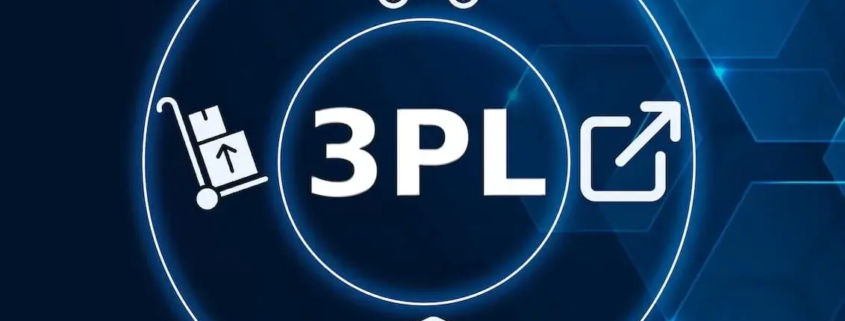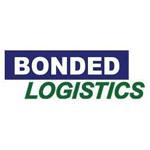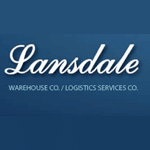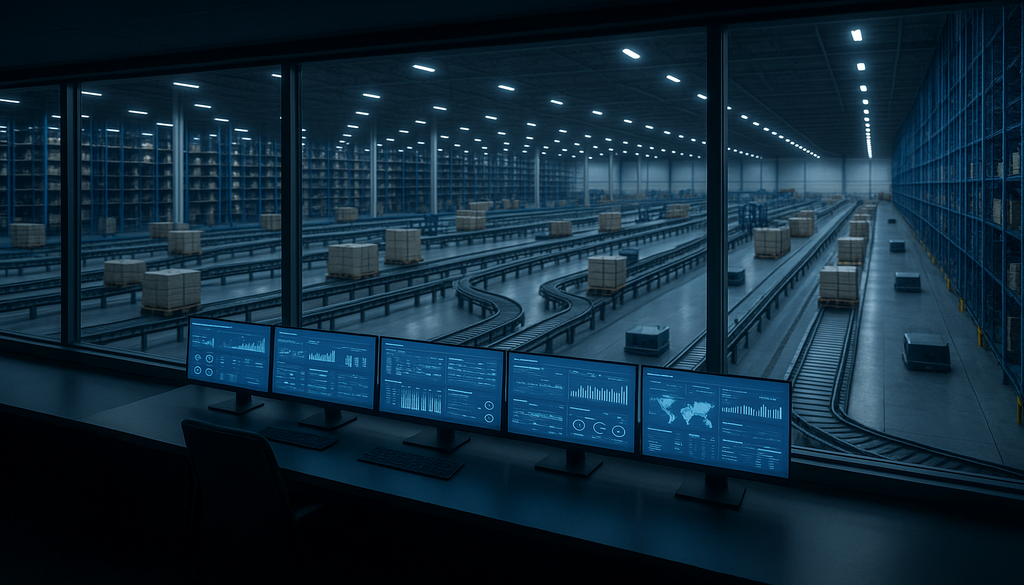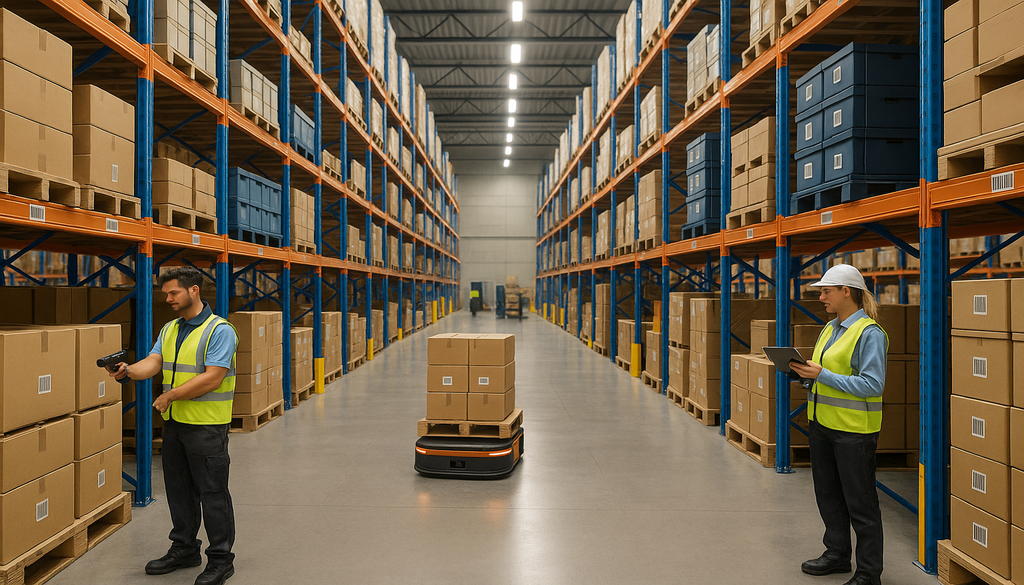Third Party Logistics Provider Definition: What is a 3PL
A third-party logistics provider (3PL) is a company specializing in managing logistics operations for other businesses. They handle key functions such as warehousing, transportation, and inventory management to streamline the supply chain process. In this article, we’ll explore the third party logistics provider definition, key functions, benefits, and differences between 3PL and other logistics models.
Key Takeaways
- Third-party logistics providers (3PLs) streamline supply chain operations by offering services like inventory management, warehousing, and transportation, allowing businesses to focus on their core activities.
- Partnering with 3PLs leads to cost savings, enhanced operational efficiency, and improved customer satisfaction by leveraging their expertise, technology, and resources.
- Choosing the right 3PL involves assessing business needs, evaluating service capabilities, and checking references to ensure the provider aligns with operational goals.
Defining Third Party Logistics Providers (3PL)
At their core, third-party logistics providers (3PLs) are businesses that offer a range of logistics services designed to manage and streamline supply chain operations. These services include:
- Inventory management
- Warehousing
- Transportation
- Order fulfillment
Integrating these critical logistics functions allows 3PLs to help businesses operate more efficiently and cost-effectively.
The role of 3PLs in supply chain management services cannot be overstated. They handle the nitty-gritty details of logistics, allowing businesses to focus on their core competencies. This includes managing inventory levels, optimizing warehouse operations, and ensuring timely delivery of goods. Leveraging the expertise and resources of 3PLs enables supply chain management professionals to achieve significant cost savings and improve their overall supply chain efficiency.
Key Functions of a Third Party Logistics Provider
The key functions of a third-party logistics provider are the backbone of their service offerings. These functions include inventory management, warehousing operations, and transportation services, each playing a vital role in the overall supply chain process. Excellence in these areas ensures that 3PLs can help businesses meet customer demands efficiently and effectively.
Inventory management involves maintaining precise records, optimizing stock levels, and ensuring that products are readily available for order fulfillment. Warehousing operations cover the storage, handling, and distribution of goods, while transportation services ensure that products reach their destinations in a timely manner.
Together, these functions create a seamless logistics operation that enhances supply chain efficiency.
Inventory Management
Inventory management is a critical function of third-party logistics providers. Utilizing advanced warehouse management software, 3PLs can maintain accurate inventory records and optimize stock placement and retrieval. This technology enables businesses to manage their inventory levels efficiently, reducing the risk of stockouts and overstock situations.
Another significant advantage of partnering with a 3PL is the ability to distribute inventory across multiple fulfillment centers. This approach not only reduces shipping times but also lowers costs by placing products closer to customers. Additionally, 3PLs offer value-added services such as kitting, which involves bundling products according to customer specifications, further enhancing the inventory management process.
Warehousing Operations
Warehousing operations are at the core of what third-party logistics providers do. These operations include receiving products, verifying receipts against shipping documentation, and inspecting items for damages before storage. Once items are stored, they are managed using sophisticated warehouse management software that ensures optimal placement and easy retrieval when needed.
Security is a top priority in 3PL warehouses, with both physical and digital measures in place to protect inventory. This includes surveillance systems, access controls, and encryption protocols.
The strategic placement of warehouses also plays a crucial role in the efficiency of the supply chain, as it allows for faster order fulfillment and better distribution capabilities.
Transportation Services
Transportation services are a fundamental aspect of third-party logistics providers. 3PLs manage the entire shipping process, from purchasing and printing shipping labels to coordinating shipments with carriers like DHL, USPS, and UPS. They offer both full truckload (FTL) and less-than-truckload (LTL) freight services to meet various shipping needs.
By leveraging their extensive network of carrier partnerships, 3PLs can optimize delivery routes and manage shipping costs effectively. This not only ensures that products are delivered promptly but also helps businesses save on transportation expenses.
Some 3PLs even offer same-day shipping services, enhancing customer satisfaction by meeting urgent delivery requirements through a fulfillment company and fulfillment services.

Differentiating 3PL from Other Logistics Models
Understanding the differences between various logistics models is crucial for businesses looking to optimize their supply chain operations. While third-party logistics providers (3PLs) handle a broad range of logistics services, other models like fourth-party logistics providers (4PLs) and freight forwarders offer distinct services that cater to different aspects of the supply chain.
By distinguishing between these models, businesses can make informed decisions about which type of provider best suits their needs. The upcoming subsections will explore the differences between 3PLs and 4PLs, freight forwarders, and in-house logistics operations, highlighting the unique benefits and challenges of each.
3PL vs. 4PL
Fourth-party logistics providers (4PLs) go beyond the services offered by 3PLs by integrating additional elements such as IT, procurement, and financial management into their offerings. While 3PLs focus on executing logistical tasks like warehousing and transportation, a fourth party logistics provider takes on a more comprehensive role in managing the entire supply chain.
For businesses seeking a more holistic approach to supply chain management, 4PLs can offer strategic oversight and integration of various supply chain processes. However, for those primarily needing logistical support, 3PLs remain the preferred choice due to their specialized expertise in handling warehousing, inventory management, and transportation services.
3PL vs. Freight Forwarders
Freight forwarders primarily focus on coordinating the transportation of goods using multiple carrier methods without actually moving the freight themselves. In contrast, 3PLs manage all aspects of the supply chain, including warehousing, transportation, and order fulfillment.
The comprehensive services offered by 3PLs make them a valuable partner for businesses looking to streamline their entire logistics operation. While freight forwarders are essential for coordinating complex shipping routes, 3PLs provide a more integrated approach that covers the full spectrum of supply chain management.
3PL vs. In-House Logistics
Outsourcing logistics to a third-party logistics provider offers enhanced flexibility and scalability compared to maintaining in-house logistics operations. Partnering with a 3PL allows businesses to avoid the significant investments required to maintain their own warehouse and handle complex logistics tasks.
This flexibility allows businesses to scale their operations more efficiently, meeting fluctuating demand without the burden of managing logistics internally. Additionally, 3PLs bring specialized expertise and resources to the table, further enhancing the efficiency and effectiveness of supply chain operations.
Benefits of Using a Third Party Logistics Provider
Partnering with a third-party logistics provider (3PL) offers numerous benefits that can significantly enhance a business’s operations. These benefits include cost savings, enhanced operational efficiency, and the ability to focus on core competencies. Leveraging the expertise and resources of 3PLs enables businesses to streamline their logistics operations and improve their overall supply chain performance.
The following subsections will delve into these benefits in more detail, exploring how 3PLs achieve cost savings, enhance operational efficiency, and allow businesses to concentrate on their primary activities.
Cost Savings
One of the most significant benefits of using third-party logistics providers is the cost savings they offer. Leveraging economies of scale allows 3PLs to negotiate favorable shipping rates and utilize advanced technology platforms that would be costly for individual businesses. This results in reduced logistics costs and lower capital commitments for businesses.
In addition to shipping cost savings, 3PLs help businesses save on warehouse space, labor, and technology investments. Optimizing logistics tasks enables businesses to allocate more resources to meeting customer demands and enhancing customer satisfaction. Ultimately, these cost savings contribute to a healthier bottom line and improved financial performance.
Enhanced Operational Efficiency
Third-party logistics providers play a crucial role in enhancing operational efficiency. By offering localized warehousing and automated solutions, 3PLs enable quicker response times to customer demands and improve inventory management. This results in faster deliveries, reduced stockouts, and better demand management.
Additionally, 3PLs offer important insights regarding restocking levels. They also assist with supply chain management and optimal seasonal inventory levels. These insights help businesses make informed decisions about inventory levels and shipping routes, ultimately improving productivity and profit margins.
Focus on Core Competencies
Outsourcing logistics functions to a third-party logistics provider allows businesses to focus on their core competencies. Relieving businesses from the burden of handling complex logistics tasks enables companies to concentrate on their primary activities and strategic initiatives.
This focus on core competencies leads to overall operational efficiency and improved business performance. Partnering with a 3PL allows businesses to allocate more resources to growth activities, innovation, and customer satisfaction, ultimately driving success in their respective markets.

Technology and Innovation in 3PL Services
Technology and innovation are at the forefront of modern third-party logistics services. 3PL providers utilize various technologies, including warehouse management systems, transportation management systems, and IoT sensors, to enhance their logistics operations. These technological advancements enable 3PLs to provide more efficient and accurate services, ultimately benefiting businesses and their customers.
The following subsections will explore the role of advanced data analytics, integration with ecommerce platforms, and automation and robotics in 3PL services, highlighting how these innovations drive supply chain efficiency and effectiveness.
Advanced Data Analytics
Advanced data analytics play a critical role in the operations of third-party logistics providers. Utilizing big data allows 3PLs to gain valuable insights into supply chain dynamics and customer preferences, enabling them to make more informed decisions.
Assessing a 3PL’s technological integration capabilities is crucial for ensuring smooth data sharing and operational efficiency. This integration allows 3PLs to optimize logistics operations, improve demand forecasting, and enhance inventory control, ultimately leading to better supply chain management.
Integration with Ecommerce Platforms
Integration with ecommerce platforms is essential for third-party logistics providers to streamline order processing and inventory management. Popular platforms like Shopify and Magento require seamless integration to ensure real-time updates and efficient order fulfillment.
This integration leads to improved efficiency in order processing and inventory management, allowing businesses to meet customer demands more effectively. Partnering with a 3PL that offers robust ecommerce integration capabilities allows businesses to enhance their online store operations and provide a better customer experience.
Automation and Robotics
Automation and robotics are transforming the logistics industry, and third-party logistics providers are at the forefront of this revolution. Technologies such as automated guided vehicles and robotic picking systems enhance the operational efficiency and accuracy of logistics services.
Implementing automation and robotics in logistics can result in faster order fulfillment, fewer errors, and overall improved supply chain performance. Leveraging these technologies enables 3PLs to provide more reliable and efficient services, ultimately benefiting businesses and their customers.
Challenges of Partnering with a Third Party Logistics Provider

While partnering with a third-party logistics provider offers numerous benefits, it also comes with its own set of challenges. Businesses may face issues such as loss of control, communication and coordination difficulties, and concerns about data security and privacy.
The following subsections will explore these challenges in more detail, providing insights into how businesses can mitigate these risks and ensure successful partnerships with 3PL providers.
Loss of Control and Visibility
Outsourcing logistics operations to a third-party logistics provider often results in a loss of direct control over critical processes. This can lead to increased operational risks, as businesses may lose oversight over inventory management, transportation routes, and delivery schedules.
To mitigate these risks, businesses can establish key performance indicators (KPIs) to monitor the performance of their 3PL provider. Additionally, it is essential to verify the trustworthiness and safety record of the 3PL provider to ensure they meet quality and service standards.
Communication and Coordination
Effective communication and coordination are crucial for successful partnerships with third-party logistics providers. Clear communication between businesses and 3PL partners ensures that logistics operations run smoothly and that any issues are promptly addressed.
Gathering feedback from a potential 3PL’s past clients is vital to understanding their customer service quality and reliability. A provider’s reputation in the industry can also be a predictor of their performance and responsiveness in critical situations.
Data Security and Privacy
Data security and privacy are critical issues when partnering with a third-party logistics provider. Businesses must ensure that their 3PL partners have strong data protection measures in place to safeguard sensitive information from cyber threats.
Establishing contractual security requirements and conducting regular security audits can help businesses maintain oversight of their 3PL’s data security practices. Prioritizing data security allows businesses to mitigate the risks associated with sharing sensitive information with third-party providers.
How to Choose the Right Third Party Logistics Provider
Choosing the right third-party logistics provider is critical for managing the relationship effectively and ensuring alignment with business objectives. Key considerations include assessing business needs, evaluating 3PL capabilities, and checking references and reviews.
The following subsections will provide detailed guidance on these considerations, helping businesses make informed decisions when selecting a 3PL partner.
Assessing Your Business Needs
Understanding your business needs is the first step in choosing the right third-party logistics provider. This involves considering factors such as order volume, growth potential, and the specific logistics challenges of your industry.
Responsive, transparent communication and dedicated support from your 3PL partner are essential for maintaining control and visibility over orders and inventory levels. Businesses should also have contingency plans in place to address potential issues with third-party logistics providers.
Evaluating 3PL Capabilities
When evaluating a third-party logistics provider, key criteria to consider include the range of services offered, integration capabilities, technology, reliability, costs, security, and industry experience. Ensuring that the 3PL provider meets all relevant industry regulations is also crucial.
Conducting due diligence, such as issuing RFPs, checking references, and visiting potential sites, can help businesses assess a 3PL’s operational capabilities accurately. This thorough evaluation process ensures that the chosen 3PL provider can meet the business’s logistics needs effectively.
Checking References and Reviews
Checking references and reviews is an essential step in validating a third-party logistics provider’s reliability and performance. Gathering consistent feedback from references and combining it with online reviews provides a comprehensive assessment of the 3PL’s services. This performance evaluation helps mitigate risks associated with outsourcing logistics and ensures that the chosen 3PL provider can meet your business needs and expectations.
By prioritizing references and reviews, businesses can make informed decisions when selecting a 3PL partner.

Real-Life Examples of Successful 3PL Partnerships
Real-life examples of successful 3PL partnerships highlight the tangible benefits that businesses can achieve by outsourcing their logistics operations. For instance, Amazon has leveraged 3PL services to achieve timely deliveries, optimal inventory management, and discounted shipping rates.
Similarly, Walmart and Nike have benefited from optimized transportation and warehousing operations, reduced costs, and enhanced inventory visibility through their collaboration with 3PLs. These examples demonstrate how partnering with a 3PL can drive efficiency, scalability, and overall business success.
Cadre Technologies: Optimizing 3PL Operations
Cadre Technologies offers advanced warehouse management solutions designed specifically for third-party logistics providers. Our 3PL Warehouse Management Software (WMS) supports complex inventory management and diverse service needs, ensuring that logistics operations run smoothly and efficiently.
- Comprehensive 3PL WMS: Our WMS provides real-time inventory tracking, seamless ecommerce integration, and flexible configurability to manage multiple customers’ inventories efficiently. It ensures precise alignment of inventory and orders, enhancing accuracy and fulfillment speed.
- Billing & Value-Added Services: Cadre’s dynamic 3PL billing module captures every operational activity and adapts to various client pricing structures. The system also supports value-added services like packaging and kitting, tracked and billed seamlessly to expand service offerings and profitability.
- Customer Portal & Integration: Our software includes a customer portal offering 24/7 visibility into orders and inventory, fostering transparency and reducing service calls. Additionally, Cadre’s WMS integrates with major ERP systems, EDI platforms, and material handling systems for efficient data exchange and streamlined operations.
- Omnichannel Order Processing: Cadre’s WMS supports omnichannel order management, capturing orders from various sources such as ecommerce platforms and retail stores. This ensures a consistent, efficient customer experience regardless of the order’s origin.
With Cadre Technologies, 3PLs can streamline operations, increase efficiency, and grow their services—all while maintaining the flexibility needed in a dynamic logistics environment.
Third Party Logistics Provider Definition Summary
In summary, third-party logistics providers (3PLs) enhance supply chain efficiency, leading to cost savings, improved operations, and a focus on core competencies. By leveraging 3PL expertise and resources, businesses can navigate logistical complexities more effectively. Choosing the right 3PL involves assessing business needs, evaluating capabilities, and checking references. By making informed decisions and partnering with a reliable 3PL, businesses can unlock the full potential of their logistics operations and drive long-term success.
Looking to optimize your logistics with a trusted partner? Explore Cadre Technologies’ solutions today.
Frequently Asked Questions
What is a third-party logistics provider (3PL)?
A third-party logistics provider (3PL) is essentially a partner that handles logistics tasks like warehousing and transportation, helping businesses manage their supply chains more efficiently.
How do 3PLs achieve cost savings for businesses?
3PLs can save businesses money by leveraging economies of scale, securing better shipping rates, and using advanced technology to streamline logistics. These strategies help reduce overall logistics costs, making it smarter to partner with them.
What are the key functions of a 3PL?
A 3PL primarily handles inventory management, warehousing, and transportation services, crucial for streamlining your supply chain. Each function ensures efficiency and helps you focus on your core business.
How can businesses mitigate the challenges of partnering with a 3PL?
To tackle the challenges of partnering with a 3PL, businesses should set clear KPIs, maintain open communication, and prioritize data security. Doing so will foster a smoother collaboration and enhance overall effectiveness.
What should businesses consider when choosing a 3PL provider?
When picking a 3PL provider, focus on their reliability, technology integration, and how well they can handle your specific logistics challenges. Also, keep an eye on costs and their experience in your industry to ensure they can support your growth.

